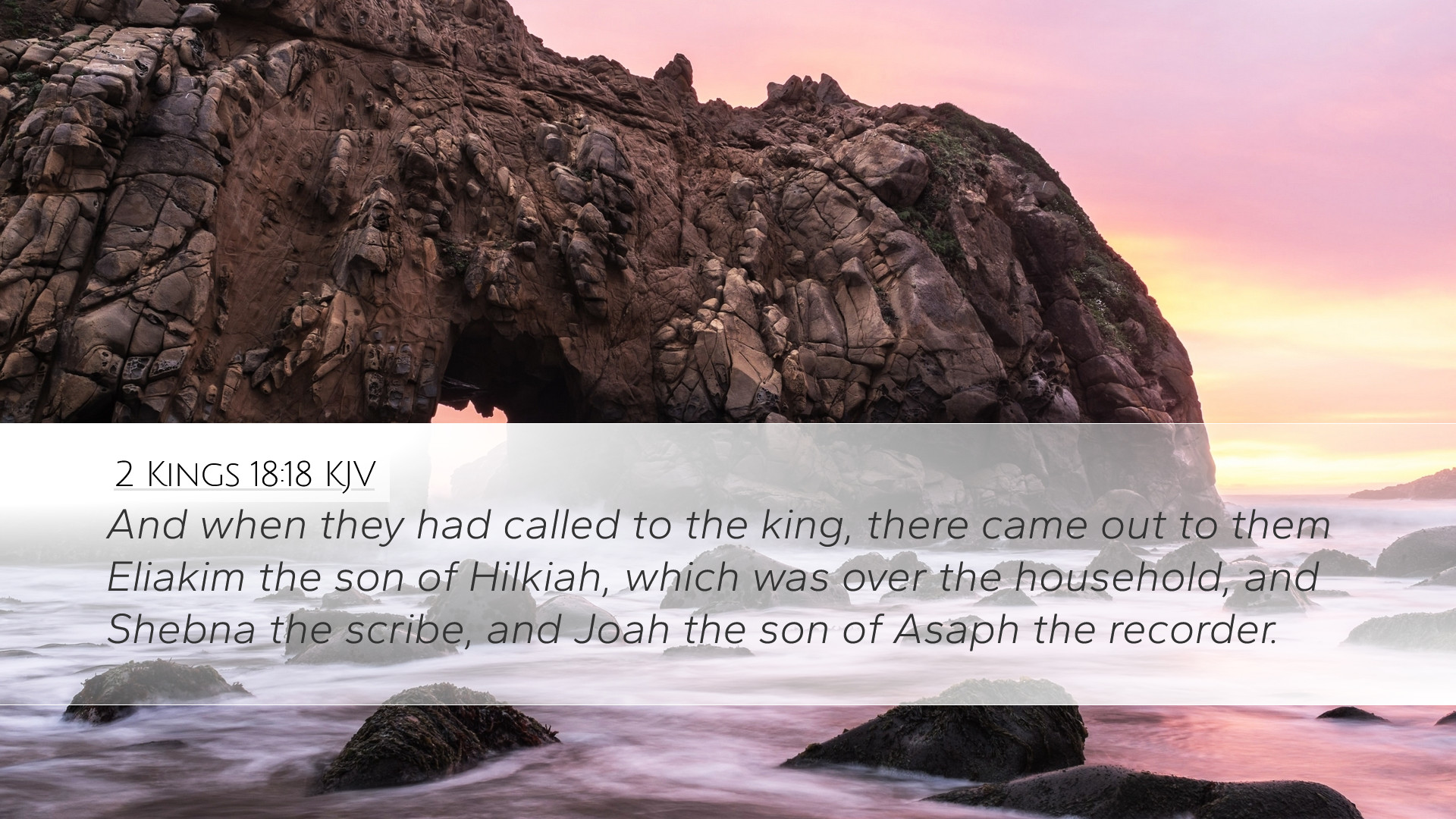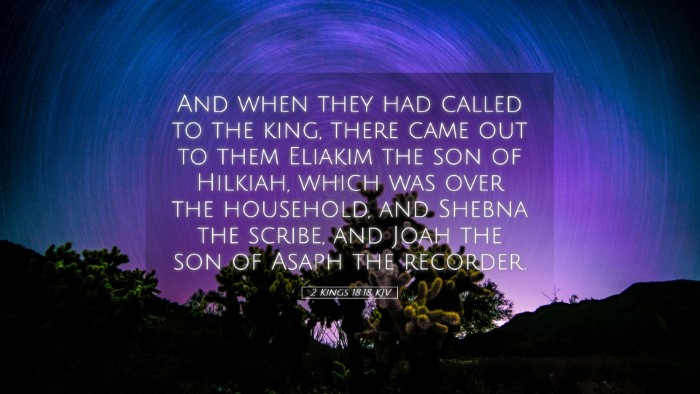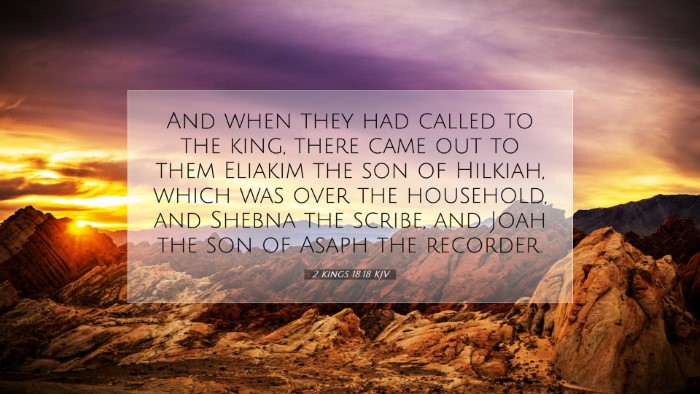Commentary on 2 Kings 18:18
2 Kings 18:18 captures a pivotal moment in the history of Judah during the reign of King Hezekiah. In this verse, we see key figures involved in a diplomatic encounter that set the stage for the theological and historical events that followed. Below is a synthesis of insights from prominent public domain commentators.
Verse Context
The context of this verse is significant as it takes place during a time of turmoil for the Southern Kingdom of Judah. King Hezekiah, known for his reforms, faces the Assyrian threat under King Sennacherib. This verse specifically sets the stage for a formal meeting between emissaries of both kingdoms, revealing not only political but also spiritual dimensions.
Commentary Insights
Matthew Henry's Commentary
Matthew Henry emphasizes the importance of understanding the setting in which this encounter takes place. He notes that:
- Preparation for Dialogue: The meeting organized by Hezekiah indicates his willingness to address the Assyrian challenge diplomatically. It reflects a strategic approach rather than an outright declaration of war.
- The Spiritual Undertone: Henry comments on how the presence of the king’s messengers signifies the tensions between faith in God versus reliance on political alliances, a recurring theme in biblical narratives.
Albert Barnes' Commentary
Albert Barnes provides a detailed exegesis of the verse and delves into the characters involved:
- Characters Present: Barnes highlights the significance of the three men mentioned—Eliakim, Shebna, and Joah—as they represent the royal authority of Judah and act as intermediaries. Their roles signify the magnitude of the negotiation with a powerful empire.
- Importance of Content: Barnes remarks on the expectations that would accompany this encounter, implying that the negotiation would not merely include territorial discussions but would also cover issues of allegiance to Yahweh versus Assyrian deities.
Adam Clarke's Commentary
Adam Clarke adds additional depth to the understanding of this text:
- The Historical Context: Clarke emphasizes that Hezekiah's actions must be viewed within the broader historical context of Assyrian conquests. The Assyrians were formidable opponents, and any dialogue with them would be fraught with existential peril for Judah.
- Theological Undertones: Clarke also stresses the tension between faith in God's promises and the human inclination toward self-preservation, a dichotomy that many struggle with in times of crisis.
Theological Implications
Through this verse, several theological implications emerge:
- Faith vs. Fear: The narrative urges believers to consider how faith manifests in times of fear and uncertainty. Hezekiah’s actions reflect reliance on God while engaging in worldly wisdom.
- The Role of Leaders: This encounter highlights the responsibilities of leaders in maintaining not only political stability but also spiritual fidelity. Hezekiah’s leadership style serves as a model for modern Christian leaders.
- God’s Sovereignty: The overarching narrative in 2 Kings affirms God's sovereignty even amid human strife and political tension, reminding us that no earthly power can thwart God's purposes.
Practical Applications
For pastors, students, theologians, and scholars, this verse offers several applications:
- Encouragement in Leadership: Leaders can draw from Hezekiah's resolve to face crisis with faith and sound judgment, encouraging them to cling to God’s promises even when circumstances appear dire.
- Understanding Contextual Theology: The need for understanding the historical and cultural context when interpreting Scripture is crucial. This verse serves as a case study in the complexity of faith and politics.
- Promoting Dialogue with Discernment: The example of diplomatic engagement exemplifies how today’s leaders should approach conflicts—seeking understanding while grounded in spiritual truth.
Conclusion
In summary, 2 Kings 18:18 is rich with political, historical, and theological significance. The insights provided by Matthew Henry, Albert Barnes, and Adam Clarke provide a multifaceted understanding of the implications of this verse. It invites contemporary readers to reflect on their approach to crises, leadership, and faith, making it a timeless passage that continues to resonate in the lives of believers.


